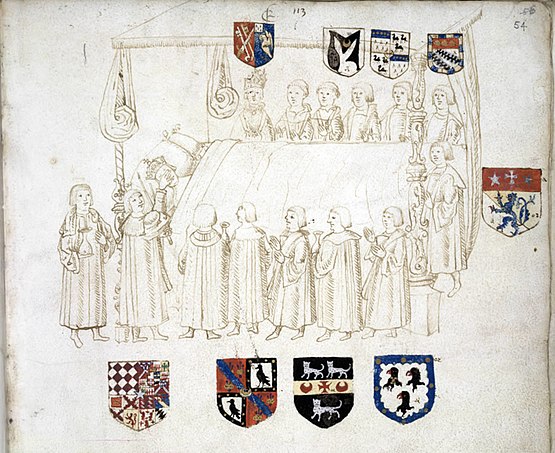I wonder why Henry VII didn't remarry after his wife's death?
He was still relatively young (46 only) and had only one living heir (who was then still a bachelor and childless); could't he find a princess 20 years younger who could give him a few healthy sons?
What could have happened if something bad happened to the heir? (for example if he had fallen from the horse and broken a backbone).
A supposition how many people would save their heads, how much bloodshed would have been spared comes to mind by itself.
He was still relatively young (46 only) and had only one living heir (who was then still a bachelor and childless); could't he find a princess 20 years younger who could give him a few healthy sons?
What could have happened if something bad happened to the heir? (for example if he had fallen from the horse and broken a backbone).
A supposition how many people would save their heads, how much bloodshed would have been spared comes to mind by itself.
Last edited:


 They can tell they belonged to adolescent boys, of roughly the correct age span. It's all suggestive, but no way to tell if it was Richard or Henry who ordered the deed. There are interesting arguments either way.
They can tell they belonged to adolescent boys, of roughly the correct age span. It's all suggestive, but no way to tell if it was Richard or Henry who ordered the deed. There are interesting arguments either way.
